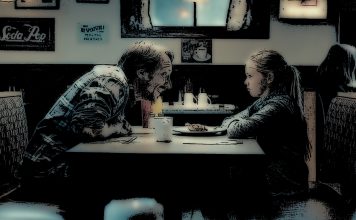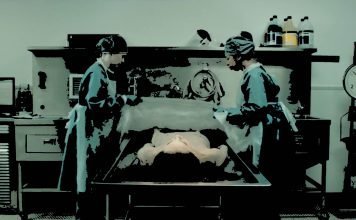How an episode of The Simpsons is made
Absoluter Wahnsinn, was hier für ein Aufwand betrieben wird. Aber von nix kommt ja bekanntlich auch nix.
Getting more done with more tools and more hands is the throughline of the modern Simpsons production process. There are more people doing more jobs with more failsafes at a higher cost on The Simpsons than the majority of — if not all — animated television shows.
[…]
In those late night television commercials that promise to make everyone a screenwriter, the script is often called the blueprint of our favorite television shows and films, a term that implies an exacting, blessed, top level instruction which the rest of the dozens if not hundreds if not thousands of artists involved obey. That notion — as anyone who has seen a summer blockbuster or network sitcom can tell — is false. The script is vulnerable, malleable, and subject to constant scrutiny. There’s a blueprint for animated shows, but it comes later. The completed draft is like a guide through the woods, ready to be supplemented, revised, or outright redrawn if need be.
Homesick
Wie verändert es uns eigentlich, wenn wir auf die große Reise durchs All gehen? Wie erinnern wir uns an Zuhause? Und wie reagieren wir, wenn Kinder anfangen von etwas zu träumen, das sie noch nie gesehen haben und von dem wir ihnen auch noch nie erzählt haben? Was ist da los?
In the beginning, we’d been pleased with the children’s dreams, because they were the same as our own, but then the children’s dreams began to change. There comes a point in time—here, where we are—when a child of a certain age begins to dream of home, meaning our home, the home we left. A home which isn’t even theirs because all the children were born on ship. They dreamt of fires, as I’ve already mentioned, and of oceans smashing down cities, and of starving refugees begging at the borders, all images familiar to us, as that had been our world. Then the dreams became nicer, meaning the children began to dream of our childhood homes, and then of homes in the times before we even lived, happy dreams of all the good we thought was gone. These dreams are carrying the children away from us, and all we seem able to do successfully is watch them be carried away, which was never supposed to happen.
We tried to correct them.
It’s Going to Be Okay
Wenn wir unsere Roboter immer intelligenter programmieren und immer mehr für uns tun lassen, warum sollten wir ihnen nicht auch dabei helfen all das zu verarbeiten? Wäre es so abwegig, einen Therapeuten für Kampfroboter zu haben, der sie wieder fit macht?
I pulled up a folding chair and sat in front of the Bear. Outside, miles away, I could hear the distant sound of explosions. Artillery. Ours or theirs, I couldn’t tell. Probably both. The guns had been busy all day—shooting at what, I didn’t know.
The Bear was listening to the explosions, too, I knew. I also knew that he, unlike me, wasn’t afraid. Not for himself, at least. Although it’s possible he was afraid for me. We program Bears to be very very concerned for a person’s safety but to disregard their own except when our safety depends on theirs. It’s a neat bit of code.
Shit, I’m doing it again. It. „How are you doing, buddy?“ I asked the Bear. But of course he wasn’t programmed to respond to that kind of query. I used to treat actual human beings, you know. Before the war.
Sie nennen es Sterbehaus
Unsereins mag sich ja auf die Rente freuen. Auf den Ruhestand. Wenn wir die Jahre der Arbeit hinter uns lassen und ein anderes Leben führen, sofern es uns noch mnöglich ist. Hat man sich über Jahre an die Spitze der Deutschen Bank gearbeitet, fällt einem das Loslassen vielleicht nicht mehr ganz so einfach. Und irgendwo muss die Bank wohl mit einem hin…
In einem unscheinbaren Gebäude im Frankfurter Westend verbringen die alten, aber nicht unbedingt ehrwürdigen Ex-Vorstände der Deutschen Bank ihre Tage. In der Stille ihrer Büros findet sich die Erklärung für das große Betrügen, mit dem die Bank nun aufräumen will.
[…]
In fast jeder Firma, fast jedem Konzern gibt es die Alten, die immer noch da sind, obwohl sie schon lange keine Funktion mehr haben. Manchmal ist es der Patriarch, der den Familienbetrieb aufgebaut und zur Blüte geführt hat. Manchmal sind es die früheren Vorstände. Zuerst dürfen sie ihr Büro behalten, dann sieht man sie morgens kommen und über den Flur gehen. Aber irgendwann werden sie doch gebeten, umzuziehen – erst in eine andere Ecke der Etage. Dann in eine andere Etage. Und manchmal in ein anderes Haus. Die Alten hören meist nichts vom Spott, der sie begleitet: dass sie jetzt in der „Grabkammer“ wohnen, wie es in einem großen deutschen Konzern heißt, oder auf dem „Elefantenfriedhof“, wie man in manchen Firmen sagt.
Bei der Deutschen Bank nennen sie es: das Sterbehaus.



